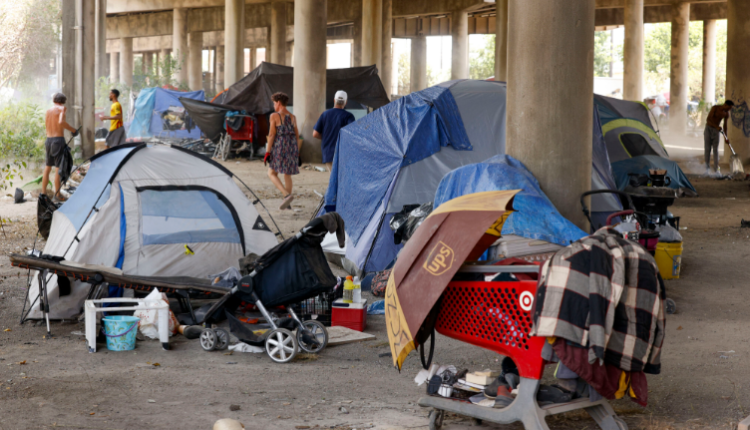The city of Dallas, Texas, is grappling with a significant rise in homelessness, mirroring a statewide trend reported by the U.S. Housing and Urban Development (HUD). This increase poses a complex challenge, stirring debates and controversial policies aimed at addressing the issue.
The Rise in Homelessness
According to a HUD report, Texas experienced a 13% increase in homelessness from 2022 to 2023, with Dallas being a notable contributor to this surge. This uptick reverses the previous downward trend, signaling a growing crisis in the state.
Factors Contributing to the Crisis
Economic Aftermath of the 2008 Crisis: The subprime lending scandals of 2008 led to a wave of foreclosures, disproportionately affecting middle-class Americans and contributing to increased homelessness.

Policy Shifts: Dallas has been criticized for its “anti-homeless” laws, echoing controversial vagrancy laws of the past. These policies often criminalize life-sustaining activities for the homeless, such as sleeping or loitering in public spaces.
Private Prison Lobbying: There is evidence suggesting that private prisons, with a significant presence in Texas, lobby for criminalizing homelessness, viewing it as a revenue source.
The Controversy in Dallas
Dallas has faced criticism for its approach to homelessness, particularly regarding policies that seem to push the problem out of sight rather than address its root causes:
“Anti-Panhandling” Ordinance: Critics argue this law infringes on the First Amendment rights of individuals asking for help, as it bans solicitation on medians or city street shoulders.
Rapid Rehousing Model: Skepticism surrounds the city’s claims of decreasing homelessness, as local data often contradict HUD reports.
Busing Programs: Allegations have surfaced about cities, including Dallas, adopting programs to bus homeless individuals elsewhere, effectively removing them from local records.
Legislative Responses and Challenges
Dallas plans to introduce policies aimed at preventing homelessness, focusing on renter protections, property tax assistance, and funding for emergency shelters. However, the effectiveness of these measures remains to be seen, particularly in the context of ongoing controversies and the reliance on non-profits for implementation.
Read More:
- Massive Drug Trafficking Ring Uncovered in Georgia: 18 Defendants Face Charges
- Georgia Mourns the Loss of Sgt. Marc McIntyre: A State United in Grief and Respect
- Truist Bank Navigates Digital Shift by Closing of Eight Georgia Branches Announced
The Broader Implication
The situation in Dallas reflects a broader national issue, with numerous American cities struggling to address rising homelessness effectively. The debate often centers on whether to prioritize immediate relief measures or long-term structural changes.
The homelessness crisis in Dallas is a multi-faceted problem, requiring a balanced approach that addresses both immediate needs and long-term solutions. While new legislative efforts show promise, the city must critically evaluate its strategies to ensure they effectively combat homelessness rather than merely displacing the problem. The challenge for Dallas, and indeed for many other cities, is to move beyond short-term fixes and work towards sustainable, humane solutions that respect the rights and dignity of all citizens.

